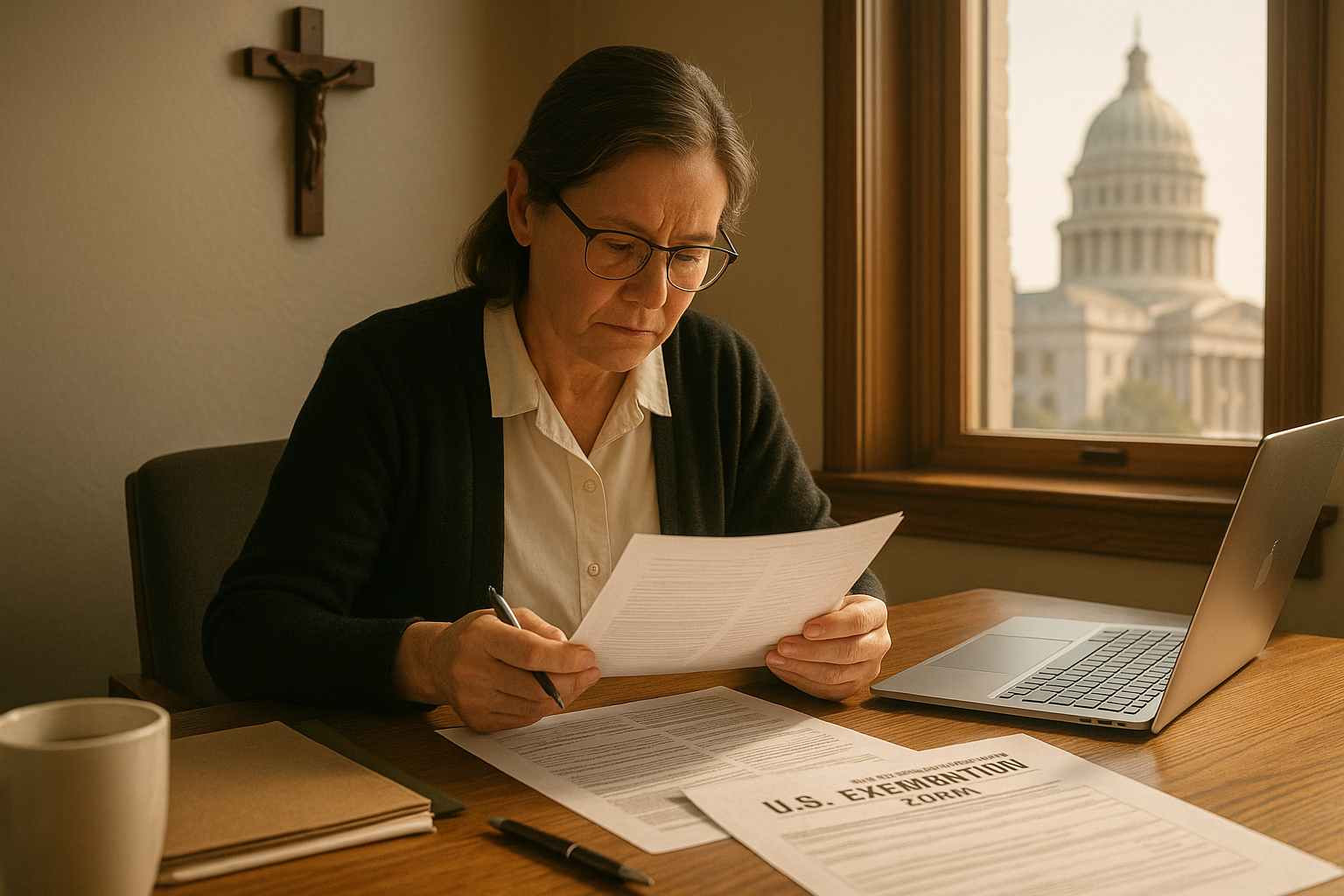📅 Decision Date: June 5, 2025
🏛️ Case: Catholic Charities Bureau, Inc. v. Wisconsin Labor & Industry Review Commission, No. 24-154
👩⚖️ Opinion by: Justice Sonia Sotomayor (Unanimous Decision)
🧩 Background: What Sparked the Case?
Catholic Charities Bureau (CCB), the social ministry arm of a Catholic Diocese in Wisconsin, was denied a state unemployment tax exemption under a law intended for organizations operated for “religious purposes.”
📄 Wisconsin’s Reason:
While CCB’s motivation was religious, its activities (like job training, caregiving, coaching) were labeled “primarily secular.”
👎 Result: Wisconsin refused to grant a religious exemption from unemployment tax.
📜 The Law in Question
🧾 Wis. Stat. § 108.02(15)(h)
Exempts employees of organizations “operated primarily for religious purposes” from unemployment tax.
⚖️ State’s Narrow Reading:
- Must have religious activities, not just religious intentions.
- Activities must be “distinctively religious.”
⚖️ U.S. Supreme Court Says: That’s Unconstitutional
🔓 First Amendment Violation
The Court unanimously ruled Wisconsin’s approach violates religious freedom under the First Amendment.
🧠 Key Point:
Wisconsin’s law “grants a denominational preference” — treating charities that proselytize or serve only their own faith members more favorably.✝️ But many religions — including Catholicism — prohibit limiting aid based on religion, making the state’s rule discriminatory.
🧵 Quotes That Matter
“Eligibility for the exemption ultimately turns on inherently religious choices… This constitutes a denominational preference.”
— Justice Sotomayor
“Many religions impose similar rules” against limiting charity based on faith.
— Justice Sotomayor
🏛️ Other Justices Weigh In
🧑⚖️ Justice Clarence Thomas (Concurrence)
- Argued the state shouldn’t treat church-affiliated entities as separate from the Church.
- Emphasized church autonomy — religious institutions define their own internal structure.
⚖️ Justice Ketanji Brown Jackson (Concurrence)
- Agreed with the outcome but highlighted the need for a function-based test (what the charity does, not why).
- Warned against probing into religious motivations, which could entangle government and religion.
🧭 Broader Implications
📌 The Wisconsin statute mirrors a provision in the Federal Unemployment Tax Act (FUTA) — and more than 40 states have similar rules.
🔍 This decision could impact how religious nonprofits are treated nationwide, especially when:
- They serve the public without religious restriction, and
- Their work is motivated by faith but expressed through social services.
✅ Takeaways for Nonprofits, Employers & Taxpayers
| 💡 Lesson | 💼 Implication |
| 🛐 Intent matters | Courts must respect religious motivations even if activities look “secular.” |
| ⚖️ Form over function is risky | States can’t demand religious groups proselytize to qualify for tax breaks. |
| 🧩 Church structures matter | Treating affiliated nonprofits as separate can violate church autonomy. |
| 🔍 Watch for scrutiny | Tax exemption rules that probe into theology are vulnerable to challenge. |
🧾 Conclusion: A Win for Religious Liberty
The U.S. Supreme Court sent a strong message:
Government cannot dictate theology to determine tax status.
Organizations like Catholic Charities — that serve out of faith but without evangelizing — deserve equal treatment under tax laws. 🎯 For nonprofits, this ruling affirms that you don’t need to preach to qualify — your mission and religious foundation are enough.








